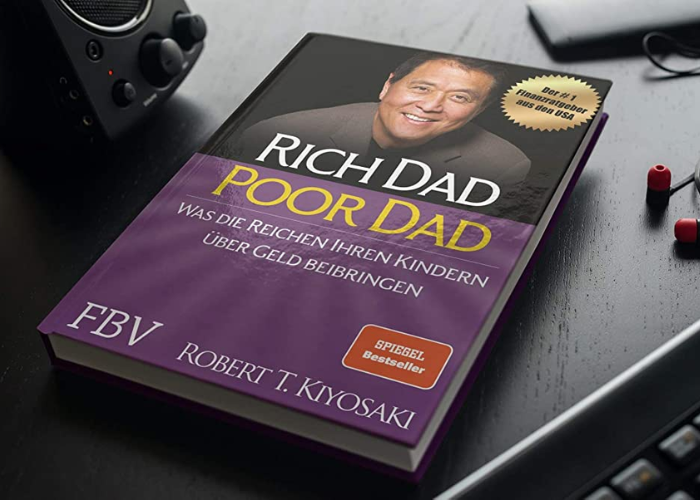
Rich Dad Poor Dad by Robert Kiyosaki is a book that has become one of the most influential personal finance books of all time. Kiyosaki’s premise is that your financial future is largely determined by the financial education you receive growing up and that those from wealthier backgrounds are given an advantage due to their access to this education. Since its release in 1997, Rich Dad Poor Dad has been translated into over 50 languages and has become a global best-seller.
The Different Experiences of the Rich and Poor
According to Kiyosaki, the main difference between the rich and the poor is their access to financial education. The rich have access to expert advice and resources, as well as the ability to learn from their mistakes, whereas the poor and middle class do not. Kiyosaki believes that the wealthy have an advantage over the poor because they understand the importance of financial literacy and they pass this knowledge on to their children.
Kiyosaki’s book reveals that the wealthy are better at making their money work for them than the poor and middle class. They invest in businesses, invest in real estate, and use the power of leverage to their advantage. The poor and middle class, on the other hand, are more likely to save their money in a bank account or invest in low-yield investments, such as mutual funds.
The Various Lessons Taught By the Rich to Their Children
Kiyosaki believes that the wealthy are better at teaching their children the importance of financial literacy. They understand the importance of investing, saving, and budgeting and they pass this knowledge on to their children. The rich also understand the power of compounding interest and the importance of diversifying their investments.
The rich also understand the power of debt. They use debt to their advantage, whereas the poor and middle class are more likely to be afraid of debt and avoid it. The wealthy understand that debt can be used to purchase assets that will generate income, and that debt can be used as a tool for generating wealth.
The Negative Psychological Impact of Not Having Financial Education
Kiyosaki believes that the lack of financial education is a major contributing factor to poverty. Those who do not have access to financial education are more likely to make poor decisions when it comes to their finances. They are more likely to fall victim to predatory lenders, get stuck in debt, and make unwise investments.
The lack of financial education can also have a negative psychological impact. Those who do not understand the basics of money and investing are more likely to feel helpless and unable to improve their financial situation. This can lead to feelings of hopelessness and depression.
The Benefits of Having Financial Education
Kiyosaki believes that those with financial education are more likely to achieve financial freedom. They understand the importance of budgeting, saving, investing, and debt management. They understand the power of compounding interest and the importance of diversifying their investments. They are also more likely to be successful entrepreneurs, as they have the knowledge and skills to understand and manage the risks associated with the business.
Having financial education also reduces the risk of financial failure. Those with financial education understand the importance of having a financial plan and have the skills to create and manage one. They are also better able to identify and avoid financial scams and predatory lenders.
Taking Action: How to Impart Financial Education to Your Children
Kiyosaki believes that it is important to teach your children the importance of financial literacy. Start by teaching them the basics of money and investing, such as the power of compounding interest and the importance of diversifying their investments. You can also encourage them to read books about money, such as Rich Dad Poor Dad, and to attend seminars about money and investing.
You can also set an example by showing your children how you manage your finances. Show them how you budget, save, invest, and use debt to your advantage. Explain why you make the financial decisions you make and help them to understand the importance of financial planning.
Conclusion
Rich Dad Poor Dad by Robert Kiyosaki is a book that has become one of the most influential personal finance books of all time. Kiyosaki’s premise is that your financial future is largely determined by the financial education you receive growing up and that those from wealthier backgrounds are given an advantage due to their access to this education. The rich are better at teaching their children the importance of financial literacy and they understand the importance of investing, saving, and budgeting. The lack of financial education can also have a negative psychological impact, and those without it are more likely to make unwise financial decisions. It is important to impart financial education to your children, as it can help them to achieve financial freedom and reduce the risk of financial failure. By teaching your children the basics of money and investing, setting an example, and encouraging them to read books and attend seminars about money and investing, you can help them to become financially literate.




